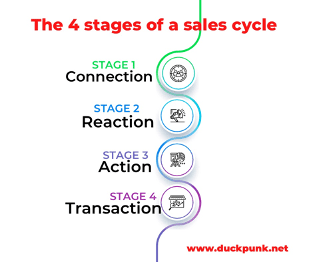Every year, millions of shoppers prepare for one of the most highly anticipated retail events: Black Friday. But how did this day become such a global shopping phenomenon? Let’s dive into the fascinating history of Black Friday and how it evolved from a simple shopping day into a cultural event that shapes consumer behaviour worldwide.
The Origins of Black Friday
The term “Black Friday” originally had a less celebratory meaning. In the 1950s, it was used by police in Philadelphia to describe the chaos that followed the day after Thanksgiving, when hordes of shoppers and tourists flooded the city for the annual Army-Navy football game. This surge of activity created massive traffic jams and overwhelmed the police, who had to work extra-long shifts, making it a “black” day in terms of stress.
By the 1960s, the term began to spread beyond Philadelphia. Retailers decided to rebrand Black Friday, emphasizing how it marked the point when stores would turn a profit, or “go into the black,” rather than operating at a loss, or “in the red.” This new interpretation gave the day a positive spin, laying the groundwork for it to become the shopping extravaganza we know today.
Black Friday Takes Off
By the 1980s, Black Friday had cemented itself as a major shopping event across the United States. Retailers started offering huge discounts, doorbuster deals, and extended hours to draw in crowds. The excitement around Black Friday grew, and the media’s coverage of massive lines and frenzied shoppers only added to the allure. Stores began opening earlier and earlier, with some launching sales as soon as Thanksgiving dinner ended, creating an even bigger buzz around the event.
This reputation for incredible savings led to chaotic scenes, with shoppers lining up for hours and occasionally even fighting over coveted items. The thrill of snagging a bargain turned into an annual tradition for many, making Black Friday an unmissable event in the holiday shopping season.
The Shift to Online Black Friday
With the rise of e-commerce in the early 2000s, Black Friday underwent a digital transformation. Retail giants like Amazon made it easy for shoppers to take advantage of deals from home, leading to a massive surge in online sales. This shift expanded the reach of Black Friday, making it more accessible and even more profitable. Online shopping trends paved the way for Cyber Monday, created to encourage post-Thanksgiving e-commerce spending, further solidifying the weekend’s importance for retailers.
The Global Spread of Black Friday
Though Black Friday began in the United States, it has since become a worldwide event. Countries like the UK, Canada, Australia, Brazil, and South Africa have adopted the shopping tradition, with local retailers offering their own deals and promotions. In some regions, Black Friday has even evolved into a month-long affair, with events like “Black November” bringing discounts throughout the month.
Criticism and Consumer Awareness
Despite its massive popularity, Black Friday has not been without its critics. The day is often seen as a symbol of consumerism, encouraging people to buy things they don’t necessarily need. Environmental concerns have also been raised, given the impact of mass production and increased shipping. Retail workers often bear the brunt of the chaos, facing gruelling hours and stressful working conditions.
Moreover, consumer awareness about deceptive deals has grown. Price tracking has shown that some discounts are inflated or misleading, with certain products being cheaper at other times of the year. This has led many shoppers to approach Black Friday more cautiously, looking for genuine savings rather than being swayed by the hype.
The Future of Black Friday
The future of Black Friday continues to evolve with consumer habits. Online shopping has only gained more traction, especially since the COVID-19 pandemic accelerated the shift to e-commerce. While in-store sales are still significant, digital deals and mobile shopping are increasingly dominating the landscape.
Retailers are adapting to consumer values, with a focus on sustainable and ethical practices. Still, the allure of scoring a great deal remains strong, and Black Friday shows no signs of losing its relevance. As long as shoppers crave bargains, this retail holiday will continue to be a major force in the global shopping calendar.
The Verdict
From its beginnings as a chaotic day in Philadelphia to a worldwide retail event, Black Friday has a rich history filled with twists and turns. Although the ways we shop have changed, the essence of Black Friday—kicking off the holiday shopping season with excitement and deals—remains the same. Whether you’re a savvy shopper or just someone who enjoys watching the frenzy unfold, the impact of Black Friday on our culture and economy is undeniable.




